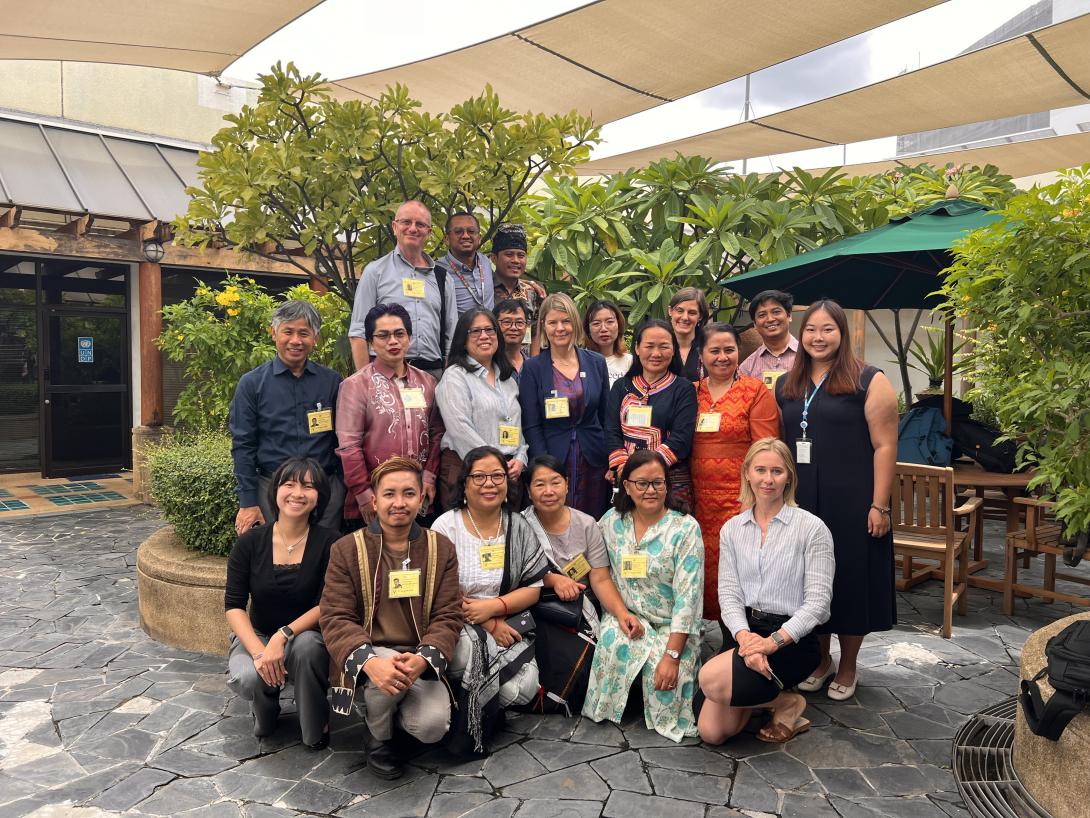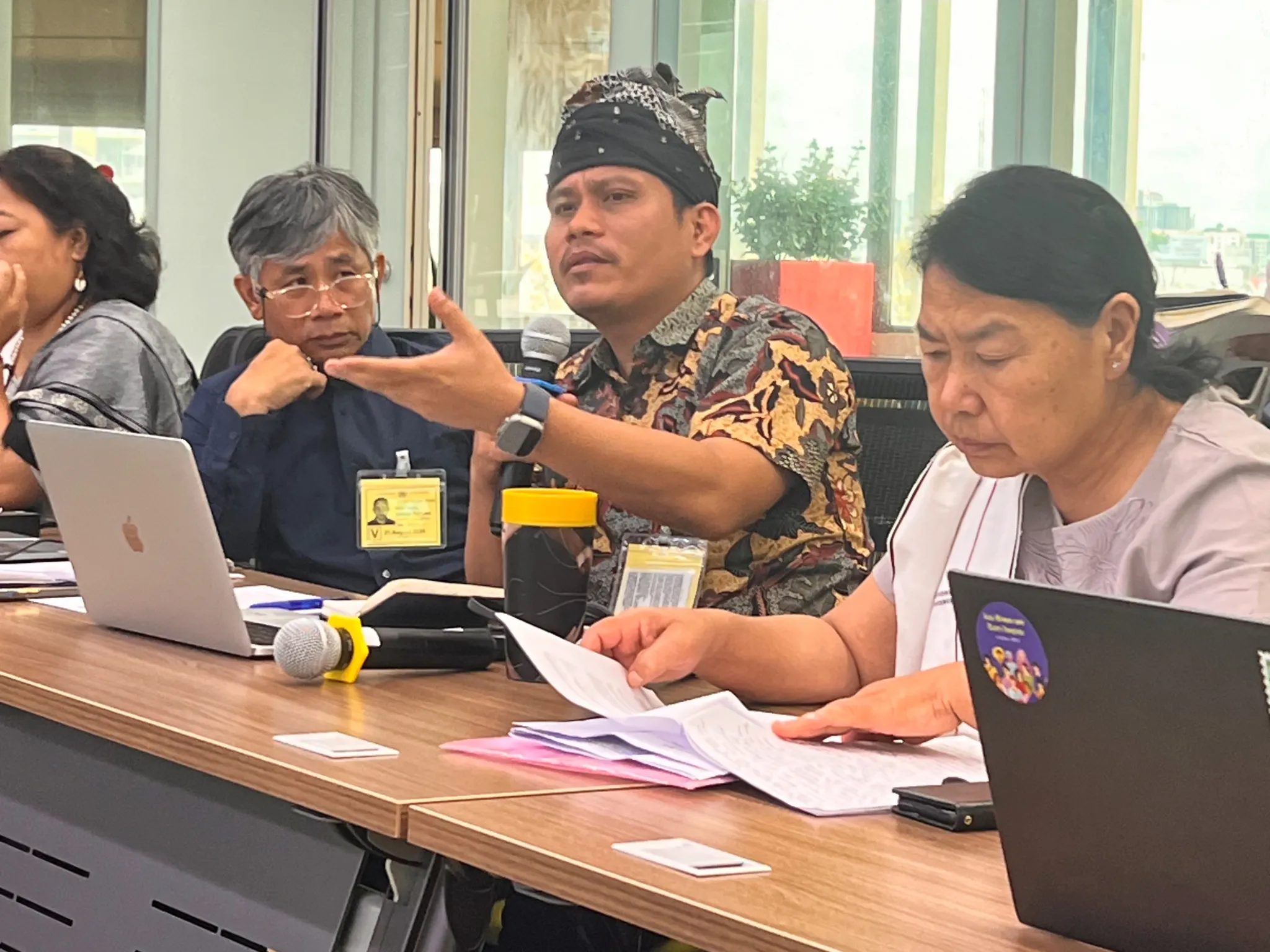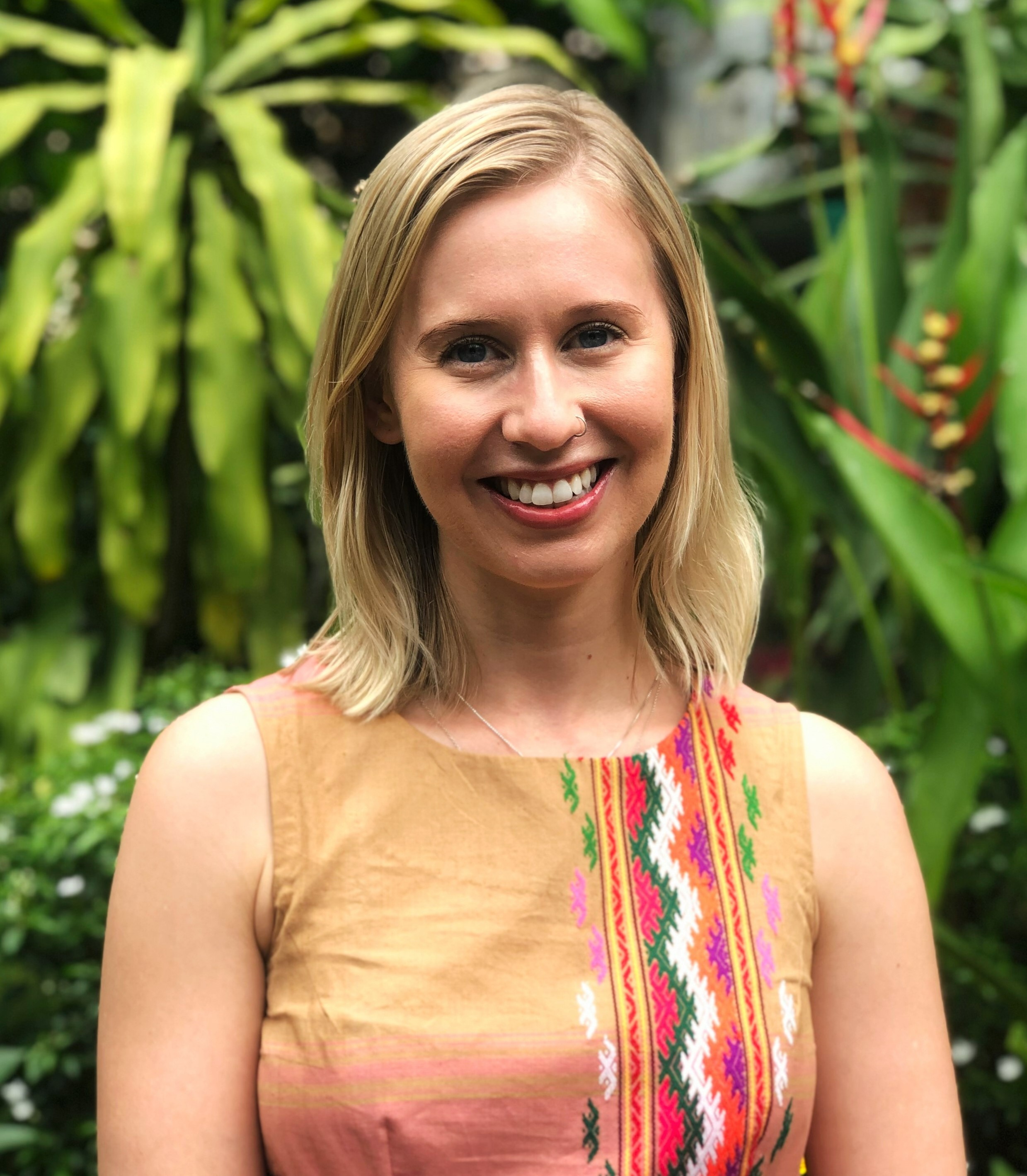
Indigenous inclusion in governance: Navigating Rights, Resources, and Representation

At a roundtable hosted by International IDEA and the United Nations Development Program in Bangkok, Thailand, Indigenous advocates and experts came together to discuss their shared efforts in the fight for recognition and rights in the region. Despite being home to the largest number of Indigenous People’s (IPs), Asia has some of the most exclusionary practices towards IPs in the world. Wide gaps in legislative and institutional frameworks leave Indigenous communities vulnerable to rights violations. IPs are underrepresented in national governments and are often barred from governing their own communities at the sub-national level. These struggles are further aggravated by shrinking democratic and civic spaces in contexts of democratic backsliding, militarisation and conflict.
While these challenges are widespread across the region, some inspiration can be found in the case of the establishment of autonomous regions such as the Bangsamoro Autonomous Region in Muslim Mindanao (BARMM), which may provide a model for self-governance. To discuss this and many other contexts, thirteen IPs and experts examined their experiences within two thematic lenses: Shrinking Civic Space and Environmental Justice and Climate Action.
Addressing the first theme, one major issue discussed was the legal and bureaucratic obstacles hindering the formation and operation of Indigenous organisations. For instance, in Nepal, the process of registering associations is burdensome, requiring yearly renewals and detailed reporting to both local and federal governments. Despite state commitments to international frameworks like the UN Declaration on the Rights of Indigenous Peoples (UNDRIP), the Convention on the Elimination of All Forms of Discrimination Against Women (CEDAW), and ILO Convention 169, these legal provisions are often not implemented. Additionally, Indigenous groups remain unrecognised in some countries including Bangladesh and India, where they are also often labelled as anti-government. IP advocates at the roundtable shared a similar concern: that powerholders in their respective countries have reasons to withhold recognition.
“There is a lack of political will by leaders. Whoever holds the power in the majority … why are they using that power against the minority? To advance their own political interest,” said Edchamcy “Edward” Intang Abelardo.
Another key issue is the exclusion of Indigenous Peoples from decision-making processes that directly affect their rights and livelihoods. They are marginalized in lawmaking, policy formation, and governance, with their voices rarely included in political processes. The legal environment further exacerbates their plight, with restrictive and draconian laws used to limit their freedom of expression, assembly, and association.
Prabindra Shakya, a human rights activist belonging to Indigenous Newar community of Nepal, said in his country activists are the target of lawfare.
“We are accused of being anti-development, ethnically motivated, and it is easy [for the state] to pursue legal reprisals against us. We have to leverage international pressure such as through the UN Special Rapporteur on Indigenous Peoples and Multilateral Development Banks [to try and advocate for ourselves.] … It is a long battle,” he said.
Despite the challenges posed by shrinking civic space, IPs in Asia have developed innovative strategies to assert and protect their rights. In Nepal, for example, advocacy efforts focus on engaging in the ongoing constitution-building and review processes to promote a pluralistic government. In addition to state engagement, Indigenous communities are strengthening their self-governance systems. In Nepal, the Tharu community has revitalised their traditional Barghar system, where the Barghar, akin to a ward chair, plays a central role in local governance. This system allows the Tharu to maintain their cultural and legal autonomy within the broader state framework.

Speaking on the Indonesian context, Abdi Akbar from the Indigenous Peoples Alliance of the Archipelago (AMAN) said that prior to colonialisation, Indonesian tribes had their own refined forms of local governance. These governance structures, which he described as democratic, were even recognised by the state before the United Nations Declaration on the Rights of Indigenous Peoples was signed in 2007. However, Indonesia has not ratified the declaration and as Akbar pointed out, implementation of its principles remains inconsistent. Akbar further added that Indigenous Peoples on the archipelago have the “skillset” to self-govern, but their systems are overlooked by the state.
Charu Bikash Tripura, the Program Coordinator for the Asia Indigenous Peoples Pact (AIPP)’s Regional Capacity Building Program in Chiangmai, Thailand, also encouraged fellow IPs to seek political office.
“If we are not part of the [national] government, who will fill in the gap? There should be Indigenous or Indigenous-minded people as part of the government,” he said.
Regarding climate action, a major concern highlighted was the misallocation of taxes from mining companies operating on Indigenous or ancestral lands, with payments going to company headquarters rather than benefiting local communities, such as in the Philippines. This issue exemplifies the broader struggle for IPs to gain fair access to the resources derived from their lands.
In Thailand, unresolved issues surrounding the relocation of Indigenous villages due to national park establishments were discussed. The government prioritises national park laws over the rights of the local communities who are deemed to be living illegally on their ancestral lands. Kittisak Rattanakrajangsri, from northern Thailand, pointed to reasonably strong national protections in Thailand but highlighted the lack of sub-laws enabling their implementation.
“The safeguards are there,” he said, but said these rights have not been translated into action due to a lack of detailed sub-laws and guidelines for enforcement.
Speaking on behalf of northern Thai hilltribes, many of whom are stateless, Saeng Mounglee from the Network of Indigenous Women in Asia pointed to the social and economic impacts of extractive industries in her ancestral lands. Emphasising the sand and gold mining trades, she said the two sectors have devastated local Indigenous communities, rendering their land and rivers unusable and unliveable due to mud, flooding and pollution. The situation has forced younger generations to leave their homeland, often ending up in exploitative jobs such as working in scam call centres near borders, where wages are higher (despite alarming labour practices).
“These are the challenges that the indigenous along the border are facing. Development projects often benefit a small group of people while causing harm to communities, environment, aquatic life, and biodiversity,” she said.
Participants stressed the importance of evidence-based advocacy to support the sustainable practices of IPs. For instance, the Salween Peace Park was highlighted as a successful model of environmentally friendly management by participant Dr Ashley South. He noted that in the political arena, having a strong advocacy message is often more influential than merely presenting evidence.




